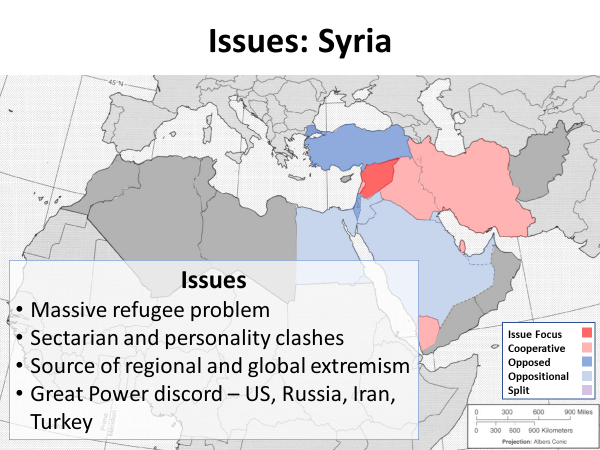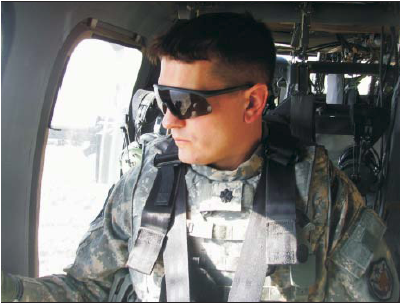|
Recent interactions between the US and Iran have driven Syria from the primary news cycles. Such absence from our thinking will come back to bite all of us. Syria is the center of most of the issues and problems in the Middle East and those problems have connections globally. Owen Wilson famously tells Billy Bob Thornton in the movie Armageddon, “okay, so the scariest environment imaginable. Thanks. That’s all you have to say, the scariest environment imaginable,” in response to Thornton’s explanation of what it will be like on the asteroid to which they are being sent. In thinking about Syria, one can start with a similar line: the most complex environment imaginable. The Assad regime is seriously weakened. It no longer governs the country in anything approaching its entirety. The country is now the center of global great power competition with the participation of Russia, China, Turkey, Iran, and the United States along with other European countries in a lesser role. A large percentage of the population is displaced either internally or externally. It is also the nexus of regional sectarian and ethnic competitions and complexities. What is going to happen in Syria? The simple answer is I don’t know. I will try to provide some thoughts regarding this complexity.
Russia and China are also deeply involved for separate and complicated reasons. Russia is seeking a warm water port, expanded influence outside its borders, combat experience, and a way to weaken and complicate the NATO relationships. China is likewise interested in expanding its influence and developing an understanding of the 21st century combat environment. One theory of the future might be the following. At some point Syria will gain sufficient control of its internal dynamics such that it can get the Kurds to agree to some form of semi-autonomy. The Kurds will do so to avoid domination of their territory by Turkey. Syria will owe its continued existence to Iran. As such, it will have to follow Iran’s guidance. Syria will continue to be a conduit for arms to Hezbollah. It will also become more and more co-dependent on Hezbollah as Syria could not have survived without Hezbollah’s military support. This will place Hezbollah in a near-peer bargaining position with the government of Syria. Once Syria has control of its internal dynamics it will be inclined to reestablish a stronger regional position and exert influence over Lebanon and intimidate Israel. The Syria-Lebanon struggle will be interesting as Syria will have lost most of its dominance. I am unsure that it can regain the prior position absent some significant change in the Allawite-Kurdish relationship within Syria. Syria needs to return to a combative relationship with Israel as that will be the only way, in their perspective, to regain regional posture. This may take years, unless Syria directs some of its many proxies against Israel or Syria becomes Lebanonized by Iran such that some of the Syrian militias become within Syria as Hezbollah is within Lebanon.
0 Comments
|
AuthorBrian L. Steed is an applied historian, Archives
February 2024
Categories |
Proudly powered by Weebly


 RSS Feed
RSS Feed